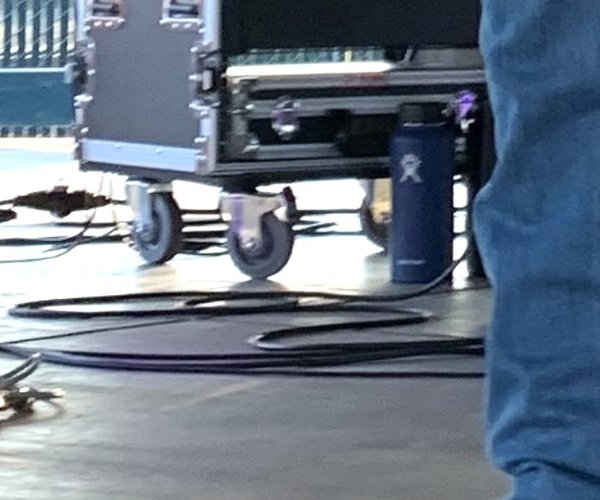West Nile Virus has returned.
The San Joaquin County Mosquito and Vector Control District received confirmation that a common raven and a yellow-headed black bird have tested positive for West Nile virus (WNV) in San Joaquin County. Both birds were collected earlier this month in Manteca. These are the first birds to test positive in the Northern San Joaquin Valley and the first sign of West Nile virus activity in the area for the 2012 season.
"Finding the first positive birds is significant because it means that the virus is present in our area," said John Stroh, District Manager. "With the very mild winter and the warm temperatures we've had so far, it's not unusual to find positive birds at this time of year."
Dead birds provide an early indication of where positive mosquito samples may also be found and where human cases may develop later in the season.
The public is encouraged to report dead birds by calling the California Department of Public Health hotline at 877-WNV-BIRD (877-968-2473). Some species of birds such as crows, jays and magpies are very susceptible to the virus and are more likely to die from the infection. Though not all birds that are reported will be picked up and tested, the reports provide valuable information and assist with mosquito surveillance and control efforts that help protect public health. Birds are hosts for WNV and mosquitoes transmit the virus by biting an infected bird and then biting a person or other animal.
With recent wet weather in the area, the District also reminds the public to drain after the rain.
"Please look around your yard and dump out water in any containers that might breed mosquitoes. It only takes a few minutes, but it goes a long way in preventing mosquitoes later in the season," said Stroh.
In 2011, nine deaths and 158 human WNV cases were reported in California.
The recent finding of the two dead birds is an indication that the WNV season is starting earlier than usual in San Joaquin County.
"It is time to take precautions against the dangers of West Nile virus (WNV)," urged Dr. Karen Furst, San Joaquin County Health Officer. "Since there is no human vaccine for West Nile virus, the best way to prevent infection is for people to take all precautions to protect themselves from mosquito bites."
Experts refer to the "four Ds" as the most effective ways to prevent WNV:
DEET - Apply inspect repellent containing DEET, picaradin, oil of lemon eucalyptus or IR 3535 according to label instructions. Apply repellents only to exposed skin and/or clothing. DEET can be used safely on infants and children two months of age and older.
DAWN AND DUSK - Mosquitoes that carry WNV tend to bite in the early morning and evening hours, so it is important to wear repellent when outdoors. Make sure that your doors and windows have tight-fitting screens to keep out mosquitoes. Repair or replace screens with tears or holes.
DRESS - Wear clothing that reduces the risk of skin exposure (i.e., long pants and long-sleeved shirts).
DRAIN - Mosquitoes lay their eggs on standing water. Eliminate all sources of standing water on your property, including flower pots, old tires, rain gutters and bird baths. If you have a pond, use mosquitofish or commercially available products to eliminate mosquito larvae. Neglected swimming pools are also prime habitat for mosquito development. The San Joaquin County Mosquito and Vector Control District continues to reduce mosquito populations in the area and is available to help with neglected pools and the prevention of mosquito development. To request District service, call 209-982-4675 or 1-800-300-4675.
Most individuals who are infected with WNV will not experience any illness. About one in five people infected with WNV will develop West Nile Fever with symptoms of headache, fever and fatigue. However, some individuals - less than 1 percent - will develop serious neurologic illness such as encephalitis or meningitis. Older adults and those with compromised immune systems have the highest risk of becoming ill and developing severe complications.
The San Joaquin County Mosquito and Vector Control District received confirmation that a common raven and a yellow-headed black bird have tested positive for West Nile virus (WNV) in San Joaquin County. Both birds were collected earlier this month in Manteca. These are the first birds to test positive in the Northern San Joaquin Valley and the first sign of West Nile virus activity in the area for the 2012 season.
"Finding the first positive birds is significant because it means that the virus is present in our area," said John Stroh, District Manager. "With the very mild winter and the warm temperatures we've had so far, it's not unusual to find positive birds at this time of year."
Dead birds provide an early indication of where positive mosquito samples may also be found and where human cases may develop later in the season.
The public is encouraged to report dead birds by calling the California Department of Public Health hotline at 877-WNV-BIRD (877-968-2473). Some species of birds such as crows, jays and magpies are very susceptible to the virus and are more likely to die from the infection. Though not all birds that are reported will be picked up and tested, the reports provide valuable information and assist with mosquito surveillance and control efforts that help protect public health. Birds are hosts for WNV and mosquitoes transmit the virus by biting an infected bird and then biting a person or other animal.
With recent wet weather in the area, the District also reminds the public to drain after the rain.
"Please look around your yard and dump out water in any containers that might breed mosquitoes. It only takes a few minutes, but it goes a long way in preventing mosquitoes later in the season," said Stroh.
In 2011, nine deaths and 158 human WNV cases were reported in California.
The recent finding of the two dead birds is an indication that the WNV season is starting earlier than usual in San Joaquin County.
"It is time to take precautions against the dangers of West Nile virus (WNV)," urged Dr. Karen Furst, San Joaquin County Health Officer. "Since there is no human vaccine for West Nile virus, the best way to prevent infection is for people to take all precautions to protect themselves from mosquito bites."
Experts refer to the "four Ds" as the most effective ways to prevent WNV:
DEET - Apply inspect repellent containing DEET, picaradin, oil of lemon eucalyptus or IR 3535 according to label instructions. Apply repellents only to exposed skin and/or clothing. DEET can be used safely on infants and children two months of age and older.
DAWN AND DUSK - Mosquitoes that carry WNV tend to bite in the early morning and evening hours, so it is important to wear repellent when outdoors. Make sure that your doors and windows have tight-fitting screens to keep out mosquitoes. Repair or replace screens with tears or holes.
DRESS - Wear clothing that reduces the risk of skin exposure (i.e., long pants and long-sleeved shirts).
DRAIN - Mosquitoes lay their eggs on standing water. Eliminate all sources of standing water on your property, including flower pots, old tires, rain gutters and bird baths. If you have a pond, use mosquitofish or commercially available products to eliminate mosquito larvae. Neglected swimming pools are also prime habitat for mosquito development. The San Joaquin County Mosquito and Vector Control District continues to reduce mosquito populations in the area and is available to help with neglected pools and the prevention of mosquito development. To request District service, call 209-982-4675 or 1-800-300-4675.
Most individuals who are infected with WNV will not experience any illness. About one in five people infected with WNV will develop West Nile Fever with symptoms of headache, fever and fatigue. However, some individuals - less than 1 percent - will develop serious neurologic illness such as encephalitis or meningitis. Older adults and those with compromised immune systems have the highest risk of becoming ill and developing severe complications.





